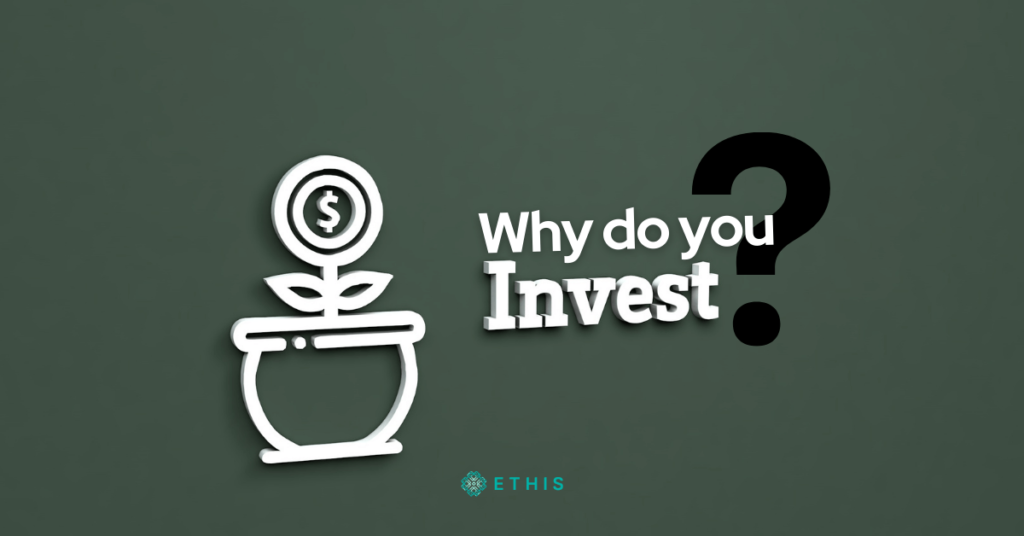
Investing may seem like a daunting concept to beginners but it doesn’t have to be! It’s essentially buying an asset that you think will appreciate in value over time so that it provides you with capital gains or other forms of returns. You can invest in stocks, real estate, cryptocurrencies, and other financial products that suit your risk appetite. There is no one magic formula to growing your money but here’s an investing guide for those who are just starting out.
Investing guide #1: Identify your investment goals
There are multiple different reasons why people choose to invest. It might be for early retirement, for their children’s education, for business growth, and other goals unique to individuals depending on their stage in life, level of commitment, and ambitions.


Ask yourself why you are investing. Your investment goals will determine which investment vehicles to consider, how much money to invest, and for how long.
Investing guide #2: Determine how much money you can afford to invest
Investing is risky. While the ultimate objective of investing is to grow our money, there are chances that you may lose some or even all of your capital. Therefore, don’t invest the money that you will need. Instead, invest only an amount that you can afford to lose.
That said, it’s important to get your personal finance in place before taking on the risk of investing (and potentially losing) your money. Start by reviewing your financial situation. List down your outstanding debts, loans, and your monthly commitments. Calculate whether you make enough to pay off those commitments regularly while putting aside some money for savings and emergencies.
Related: 7 Money Management Tips to Improve Your Personal Finance
Once you have a clear picture of how you are doing financially, then only you are able to tell whether you have excess money to spare and how much money you can afford to lose should your investment go south.
Investing guide #3: Evaluate your investment options
Now that you have identified your investment goals and figured out how much money you can afford to invest, it’s time to look through all the investment options available in the market.


It’s important to understand each investment vehicle, term of investment, and how much risk it carries. Shortlist a few options that align with your investing goals and capital to narrow down your options before putting your money in.
Here are a few popular investment options for those just starting out:
1) Robo-advisors
Robo-advisors are wealth management platforms that automate your investment based on your investing goals and risk tolerance. After signing up on the platfotm it will typically prompt you to complete a set of questionnaires that will be used to determine your investment portfolio, but this still depends on the platform. From there, it automatically diversifies your investment into a mix of asset classes, such as bonds, equities, and commodities.



It’s the best alternative for those looking for passive investment without an intermediary of a real-life fund manager. You leave it to the platform to optimise the best investment portfolio for you while you save time researching, monitoring, and rebalancing your own investment.
Popular robo-advisors in Malaysia that are shariah-compliant include Wahed Invest and BEST Invest by Bank Islam Malaysia Berhad.
Related: Halal Investment: A Beginner’s Guide
2) Unit trust funds
Similar to robo-advisors that diversify your investment portfolio and provide a form of passive investment, unit trust funds offer the same kind of convenience. The only difference is that it is managed by professional fund managers, not some smart algorithm system.
There are multiple channels that you can leverage to invest in unit trust funds. The most common one is via unit trust agents such as Public Mutual agents, but you can also invest directly through banks and private retirement schemes (PRS) that are offered by Kenanga Investment and Principal Asset Management, among others.
Diversify your investments
Have you heard of the saying “don’t put all your eggs in one basket”? This applies to investing as well. In fact, it is the most important rule that every investor, seasoned or beginner, should live by.


To put all your eggs in one basket means to risk losing all the money you invest as you depend entirely on only one investment portfolio for your money to grow.
Smart investors diversify their investments by spreading their capital across multiple investment portfolios. This helps spread out your investment risk. One of the investment options you can consider in your diversification strategy is investment crowdfunding.
Learn more about how you can invest in profitable SME financing projects in Indonesia and promising startups and high-growth companies in Malaysia via our shariah-compliant equity crowdfunding and peer-to-peer (P2P) lending platforms at ethis.co today!
Start investing early
It takes time for your money to grow. The earlier you start investing, the more time your money has to multiply. The longer you put your money to work, the more wealth it can generate.
Besides, investing early allows you more time to learn by doing and refining your strategies from your successes and failures. It puts you at an advantage in terms of the learning curve.
Your age also largely influences the degree of risk you can take. Technically, the younger you are, the more risk you can withstand as you have more years ahead. That said, you can build more aggressive portfolios that are subject to higher volatility and higher potential yields. Even if you lose, you still have time to recuperate, unlike those who are reaching their retirement age.
Also read: Take Charge of Your Financial Health: Halal Investment Guide for Youth





Top Posts
Islamic P2P Crowdfunding Explained
Halal Money Matters: How Muslims Can Balance Deen and Dunya with Smart Islamic Finance
Halal Investments for Singapore Muslims? It’s time for a shake-up in the Islamic Investments scene.
Smart investment for making Halal money
3 Reasons Why Property Crowdfunding is the Smart Investment for You